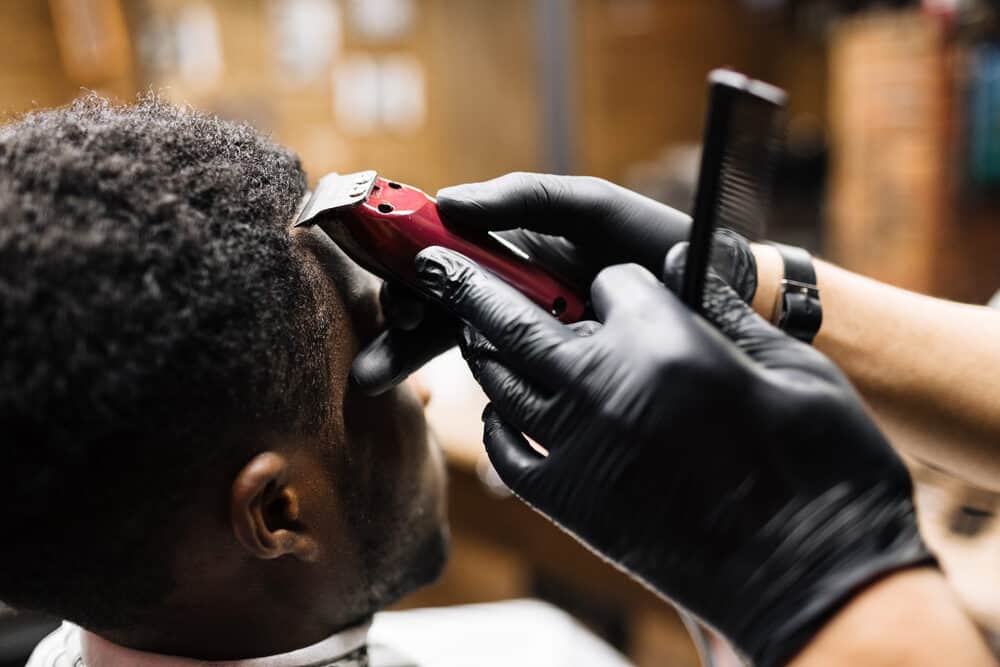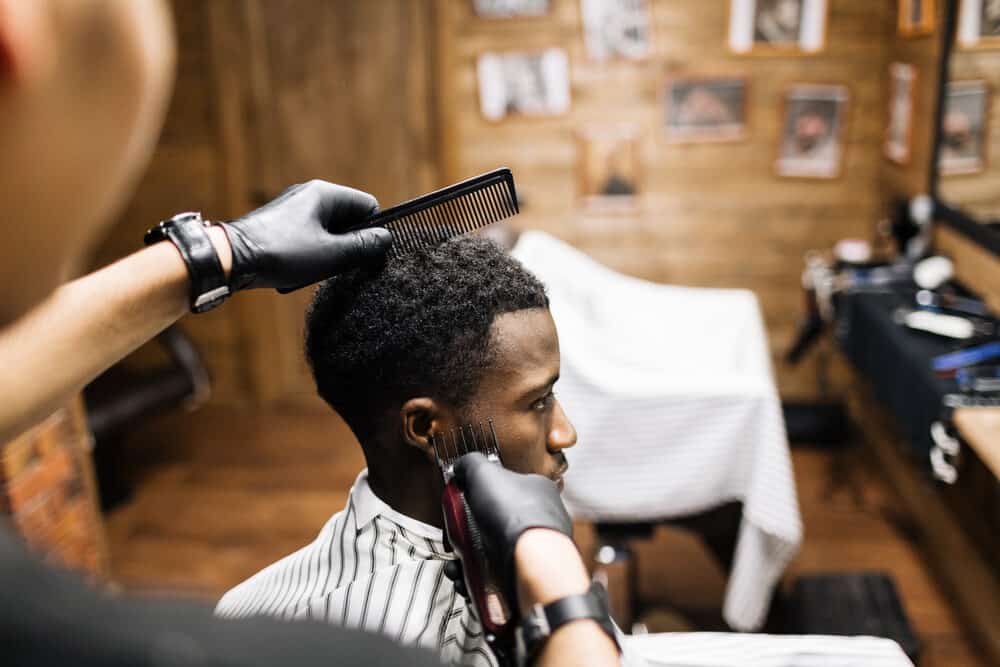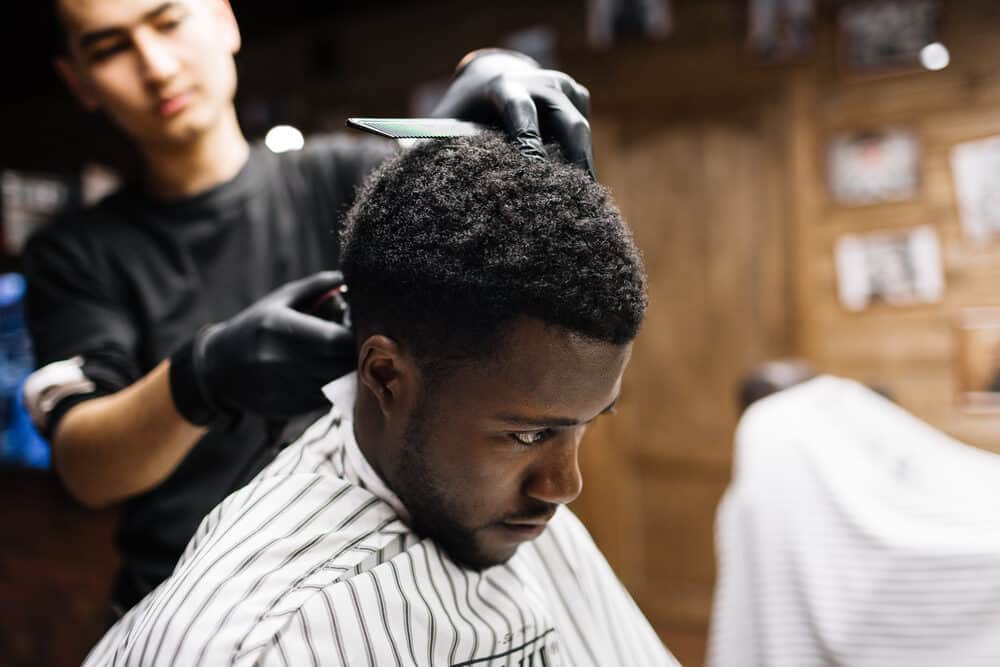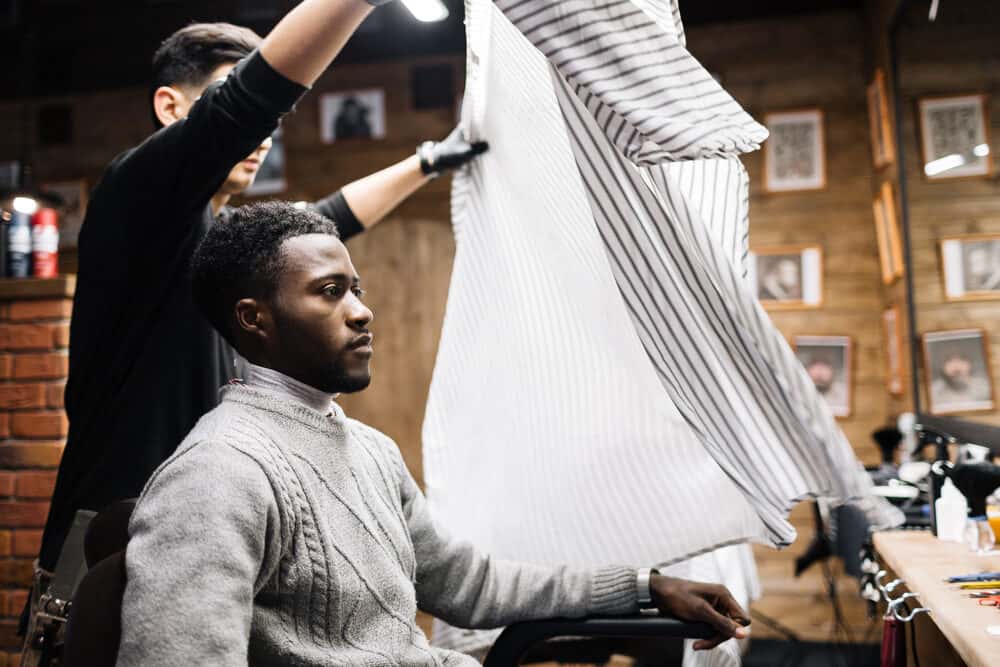
If you're unsure of the biggest difference between hair clippers and trimmers (e.g., beard trimmer), you're not alone. Many people have heard about these tools and don't understand the main difference between hair clippers and trimmers.
But one thing's for sure; it'll be much easier for you to achieve your desired look if you understand the differences between these tools.
Let's take a look at hair clippers and trimmers and their key differences.
Table of Contents
What is a Hair Clipper Used For?
Back when technology was not really in vogue, cutting hair was tedious. It was also time-consuming, and the results were not as good as haircuts are now.
Barbers had to use scissors and combs to cut through thickets of hair manually. Thank goodness for Leo. J. Wahl, the man who invented the first electric hair clipper.
Clippers replaced scissors, and guide combs partially replaced combs.
Clippers are the first tool needed to cut large chunks of hair off. They do the heavy work. They come with guide combs, also called clipper guards, which allow you to determine how short your hair will turn out.
The thing is, like big scissors, they cannot cut close to your scalp/skin. They just lay the groundwork for trimmers and shavers.
What is a Hair Trimmer Used for?
After you have successfully cut off most of your hair with clippers, it’s time to clean things up further. Clippers are useless if you want to create a fancy design or a clean outline. For that, you’ll need trimmers.
When it comes to light shaping, carving in designs, or cutting hair located in hard-to-reach places, trimmers get the job done. They are built for detail and precision.
Something to look out for when buying trimmers is whether they are zero-gapped or not. If they are not zero-gapped straight out of the box, you should determine whether they can be adjusted.
Zero-gapped trimmers give you the sharpest lines possible in the least amount of time.
Clipper vs Trimmer: The Differences

Now that you know what clippers and trimmers should be used for, let’s jump into the differences in greater detail in the below section.
Blade Thickness
Clippers have thick blades that have no trouble cutting through the thickest, densest afro-textured hair. The teeth of the blades are also farther spaced than is the case with trimmers.
Hence, cutting long hair to a reasonably short length is what a clipper is for, and this does not only apply to the hair on your head.
If you have grown yourself a forest of a beard and want to get an even trim all by yourself, you could do it with clippers. As mentioned earlier, clippers are for the heavy work when getting haircuts.
Trimmers, on the other hand, have shallow, thinner blades explicitly made for giving close shaves. Although not impossible, you are not advised to use trimmers to cut long hair.
Apart from the fact that you would probably be yelling, "ouch," every few seconds from hair-pulling, it would take more time than necessary and probably dull your blades.
Trimmers cut hair situated in areas clippers could never reach. These areas include behind and around the ears, the back of the neck, and so on.
Styling Possibilities
While clippers are a bit limited in their usage, trimmers can be used for a wide variety of purposes.
You could use them to create cool fades with the aid of guide combs (significantly smaller in size than the guide combs for clippers) or even in-built adjustments, depending on the type/brand of trimmer.
Note that not all trimmers come with guide combs, though. Also, they are good tools for getting a close beard shave right before using a proper shaver to achieve a clean shave.
It is all right to use trimmers for your beard because their blades are usually forged from hypoallergenic materials like titanium and stainless steel.
Therefore, you do not have to worry about skin irritation even when you dry-shave. It is also possible to get a clean shave with a zero-gapped trimmer.
Furthermore, some people use trimmers to shave their groin area. You are advised to be very careful, though. You would not want any accidents down there.
Size
Clippers are often larger and heavier than trimmers. Because of this, they can be challenging to handle, and your arm could get tired while you’re cutting your hair.
Trimmers, on the other hand, are often more compact since they are built for getting into nooks and crannies, around ears, etc.
Clipper and Trimmer Differences at a Glance
| TRIMMERS | CLIPPERS |
|---|---|
| Lightweight and compact | Bulky and heavy |
| For close shaves, designs, edging | For cutting off large chunks of hair |
| Smaller blades | Large blades |
| Usually easy to handle | Can be difficult to handle |
| Usually, come without attachments | Often come with attachments |
Do You Need a Clipper and a Trimmer?

For a complete, well-put-together haircut, you will most likely need both clippers and trimmers. But this is not true in all cases. If you have shorter hair already, you can get by with just a trimmer.
But if you go several weeks or months between haircuts and you want a shortcut, you’ll need to use clippers first to get rid of the bulk and then add finishing touches with a trimmer.
Pros and Cons of Clippers
To further explore the unique aspects of clippers, it’s essential to jump into the pros and cons. We’ll do that in the following section.
Pros
- They can cut through thick, coarse hair easily.
- They often come with a wide range of guide combs/attachments that give you various styling options.
- They’re best for maintaining clean afros.
- You can use clippers to trim full beards before shaving or just keep your full beard in shape.
- Clippers are an upgrade from scissors, making it easier to get a uniform cut on yourself.
Cons
- They will not provide a close shave - you’ll need trimmers to do that.
- Clippers are considered high maintenance, considering the fact that you need to oil them each time you use them.
- They are pretty much useless when it comes to grooming short hair.
- Clippers tend to be weighty and not so easy to handle.
Pros and Cons of Trimmers

Now, let’s dive into the pros and cons of trimmers in the following sections.
Pros
- They’re best for grooming and styling short hair. For example, when I have a long beard, I usually use beard trimmers to create a clean look.
- They can function as a clipper if you are patient enough and your hair is not extremely coarse. The reason you have to be patient is that trimmers aren't as good at bulk hair cutting as clippers.
- They can double as a shaver for men with sensitive skin. I have sensitive skin and commonly use trimmers for easy shaving. Trimmers don't cut extremely close, but they also don't cause razor bumps as I would often get when either wet or dry shaving with a razor. If you're looking for a closer shave you'll need to use a straight razor with either damp or dry hair.
- There are trimmers made with hypoallergenic blades which do not cause skin irritation.
- They are easier to maintain than clippers.
- They effectively cut hair located in hard-to-reach areas.
- Trimmers are compact and lighter than clippers and consequently easier to handle.
Cons
- They do not always come with guide combs, which can make it challenging to create some designs and effects.
- They are not great for cutting long hair - if your hair is long, you’ll need to start with clippers.
- Good trimmers that can outline, carve and edge afro-textured hair properly can be costly. You may be able to find good trimmers at a bargain price, but you’ll have to search high and low.
- They require great caution when in use as they can be very sharp.
For a complete haircut, you will most likely need both clippers and trimmers. Trimmers are for the smaller details like your sideburns or beard while clippers do all of the heavy lifting to give you that perfect cut.
Now you know all there is to know about the differences between clippers and trimmers. We hope that you find this information useful and that it makes it easier for you to style your hair at home.




